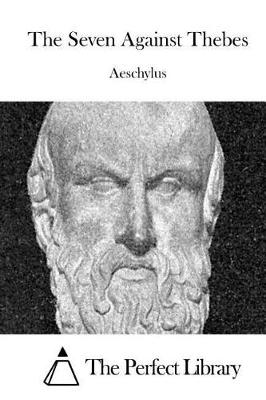Clarendon Paperbacks
3 total works
Purchase of this book includes free trial access to www.million-books.com where you can read more than a million books for free. This is an OCR edition with typos. Excerpt from book: And wept; while visioned in the light Of her own loveliness, more bright Than pictured breathing form that is but mute, She looked as though she wished, with that pure voice, That oft her father's halls along, Had made full many a chieftain there rejoice, To speak to that assembled throng. STROPHE IV. Yes! at those feasts that maiden chaste and fair, In modulations soft and sweet, Had warbled many a joyous air To her glad sire, and told how great Would be his fame, how blest his state. The rest I saw not?nor to sing could dare: Justice confirms the laws of fate, Too well that augur's words recorded were, The past already may relate, What future ills for us the Gods prepare. ANTISTKOPHE IV. A mystic dark impenetrable veil Hangs o'er the fortunes of the great, To pierce that barrier all must fail, The secret hour of time and fate All those who dare anticipate, Reap that they sow, a crop of tears: we see That omens, ever, soon or late Come true. Oh! prosperous may the future be ! Sole guardians of this Apian state Thus pray ye all, and bless the augury. chapter{Section 4CHORUS. CLYTEMNESTRA. CLYTEMNESTKA. Queen Clytemnestra, we are come to offer Such homage as befits a royal consort, For justice bids, those honours of the throne, Where our king sate, be paid you in his absence. If you have heard of gladdening import aught, Or hearing not, make sacrifice with hopes The messengers of good, we willingly Would know; nor thou disdain through envious pride To answer this our wish. CLYTEMNESTRA. Morn, as men say, Come forth in gladness from the womb of night. You shall hear joyous tidings, news beyond Your utmost expectation good; the Greeks Are lords of Priam's city. CHORUS. What do...
Though the Septem has been the focus of much scholarly attention in recent decades, this powerful drama remains difficult for modern readers and presents great problems of text and interpretation. The text of this major edition differs substantially from other current versions and the commentary draws on literature, art, and inscriptions to illuminate the work and its details by placing them in the context of Greek culture and society, and by showing how conventions are used, modified and distorted. Particular attention is given to style and language, to dramatic and literary structures and forms, and to the exploitation of religion and ritual.
Produced in 458 BC, Aeschylus' Choephori stands as the second play in the Oresteian trilogy. The bloodshed begun in the first play with the murder of Agamemnon by his wife Clytemnestra is here continued when Agamemnon's son Orestes avenges his father's death by killing Clytemnestra. It is not until the third and final play, Eumenides, that peace is restored to the family of the Atreiadae.
This edition (first published in hardback in 1986) takes into account the large amount of recent research on the play and tackles the problems presented by an unusually corrupt text. The introduction discusses the pre-Aeschylean 'Orestes' tradition in literature (from Homer to Pindar) and art (representations on vases and reliefs), as well as the place of Choephori within the Oresteia, its imagery and dramatic structure, the questions of staging the play, and the manuscript
tradition. Much of the commentary looks at problems of style, dramatic technique, and interpretation of the play, and before each scene is discussed an analysis of its contribution to the drama as a whole is supplied. The text and critical apparatus reproduced are those of D. L. Page (Oxford Classical
Texts).
This edition (first published in hardback in 1986) takes into account the large amount of recent research on the play and tackles the problems presented by an unusually corrupt text. The introduction discusses the pre-Aeschylean 'Orestes' tradition in literature (from Homer to Pindar) and art (representations on vases and reliefs), as well as the place of Choephori within the Oresteia, its imagery and dramatic structure, the questions of staging the play, and the manuscript
tradition. Much of the commentary looks at problems of style, dramatic technique, and interpretation of the play, and before each scene is discussed an analysis of its contribution to the drama as a whole is supplied. The text and critical apparatus reproduced are those of D. L. Page (Oxford Classical
Texts).

